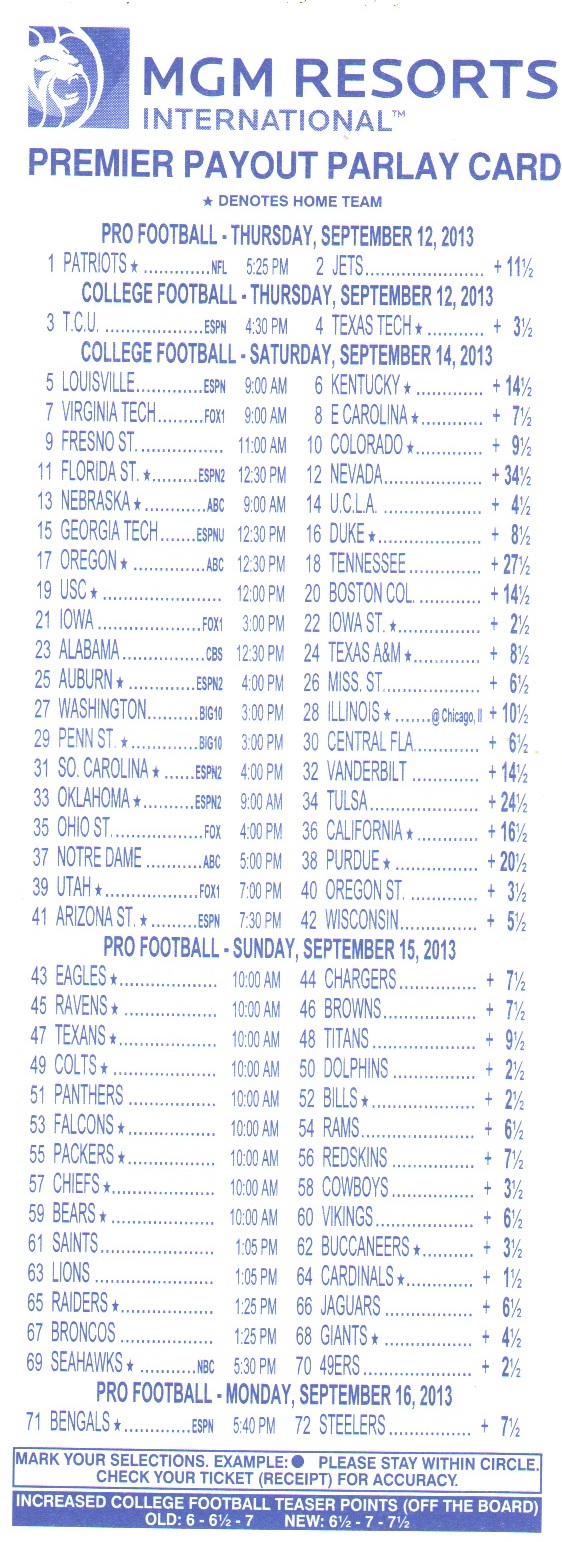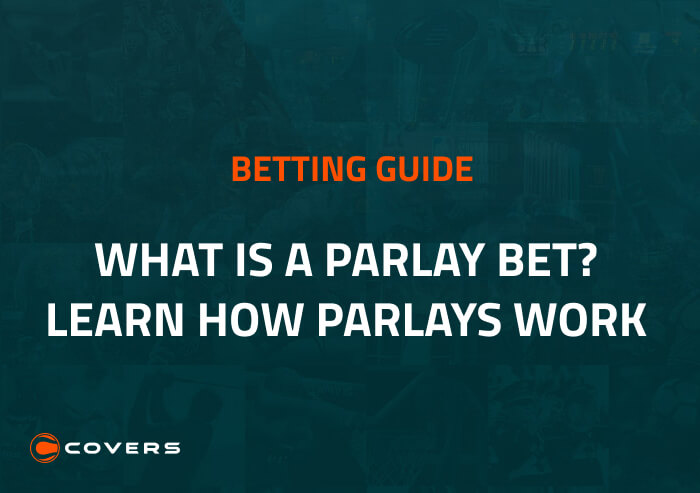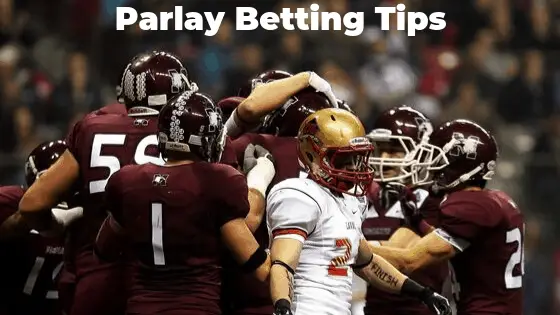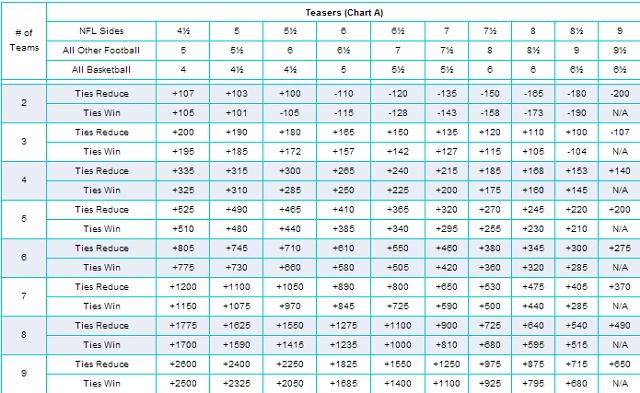What is a parlay and how do I place a parlay bet? A parlay bet is a bet on two or more individual events, including: A 3 bet parlay involves you choosing the winner from three different games. For a single bet, 2 to 8 teams or totals can be selected. In order for the parlay bet to win, every one of the wagers must win or push (tie). If any of the selections lose, your wager loses, regardless of the outcome or cancellation of the other games. Payouts on a 2 team parlay are standard throughout the industry at 13/5. Sportsbooks will pay $2.64 for every $1.00 wagered.
A parlay, accumulator (or acca), combo bet or multi is a single bet that links together two or more individual wagers and is dependent on all of those wagers winning together. The benefit of the parlay is that there are much higher payoffs than placing each individual bet separately, since the difficulty of hitting all of them is much higher. If any of the bets in the parlay lose, the entire parlay loses. If any of the plays in the parlay ties, or 'pushes', the parlay reverts to a lower number of teams with the odds reducing accordingly.
Odds and payout[edit]

A parlay bet is a sports bet that combine multiple straight bet wagers on one ticket. Usually, you would pool straight-up bets with spreads and totals. However, you can have multiple versions of the same bet as long as it’s on different games. How Do Parlays Work?
Parlay bets are paid out at odds higher than the typical single game bet, but still below the 'true' odds. For instance, a common 2-team NFL parlay based entirely on the spread generally has a payout of 2.6:1.[citation needed] In reality however, if one assumes that each single game bet is 50/50, the true payout should instead be 3:1 (10% expected value for the house). A house may average 20-30% profit on spread parlays compared to perhaps 4.5% profit on individual sports mix parlay bets.
Aside from 'spread' parlays, another way to parlay is to bet on two or more teams simply winning straight up. In order to calculate the payout of this parlay, one must multiply out the payout for all games. For example, if 3 teams are -385 favorites, a successful parlay on all 3 teams winning would pay out at a ratio of approximately 1/1. This is because (385/485)^3 is approximately 50%.

Examples[edit]
Typical payouts for up to 10 team parlay bet[edit]
The following is an example of a traditional Las Vegas Parlay Card at William Hill Sports Book, which shows the typical payouts for an up to 10 team parlay bet based on -1.10 prices (amount won is assuming $100 is bet)[citation needed]:
| Number | Odds | Amount won | Payout |
|---|---|---|---|
| 2 Team Parlay | 2.6 to 1 | $260 | $360 |
| 3 Team Parlay | 6 to 1 | $600 | $700 |
| 4 Team Parlay | 11 to 1 | $1,100 | $1,200 |
| 5 Team Parlay | 22 to 1 | $2,200 | $2,300 |
| 6 Team Parlay | 45 to 1 | $4,500 | $4,600 |
| 7 Team Parlay | 90 to 1 | $9,000 | $9,100 |
| 8 Team Parlay | 180 to 1 | $18,000 | $18,100 |
| 9 Team Parlay | 360 to 1 | $36,000 | $36,100 |
| 10 Team Parlay | 720 to 1 | $72,000 | $72,100 |
Profitability of parlays in sports betting[edit]
Many gamblers have mixed feelings as to whether or not parlays are a wise play. The best way to analyze if they are profitable in the long term is by calculating the expected value. The formula for expected value is: E[X] = x1p1 + x2p2 + x3p3…xkpk . Since the probability of all possible events will add up to 1 this can also be looked at as the weighted average of the event. The table below represents odds.[citation needed]
Column 1 = number of individual bets in the parlay
How Do You Parlay On Bet365
Column 2 = correct odds of winning with 50% chance of winning each individual bet
Column 3 = odds payout of parlay at the sportsbook
Column 4 = correct odds of winning parlay with 55% chance of winning each individual bet
| Number of individual bets | Correct odds at 50% | Odds payout at sportsbook | Correct odds of winning parlay at 55% |
|---|---|---|---|
| 2 | 3 to 1 | 2.6 to 1 | 2.3 to 1 |
| 3 | 7 to 1 | 6 to 1 | 5.0 to 1 |
| 4 | 15 to 1 | 12 to 1 | 9.9 to 1 |
| 5 | 31 to 1 | 24 to 1 | 18.9 to 1 |
| 6 | 63 to 1 | 48 to 1 | 35.1 to 1 |
| 7 | 127 to 1 | 92 to 1 | 64.7 to 1 |
| 8 | 255 to 1 | 176 to 1 | 118.4 to 1 |
| 9 | 511 to 1 | 337 to 1 | 216.1 to 1 |
| 10 | 1,023 to 1 | 645 to 1 | 393.8 to 1 |
| 11 | 2,047 to 1 | 1,233 to 1 | 716.8 to 1 |

The table illustrates that if a 55% chance of winning each individual bet were achievable, parlays would be profitable in the long term. Compare the expected value you receive on an individual bet at a typical price of -110 with a 55% chance of winning: ((100/110+1)*.55)-1 = .05 (exactly 5 cents won for every dollar bet on average), multiplied by 11 = .55, to the expected return on the 11 game parlay ((1234/717.8)-1) = .719 (72 cents won for every dollar bet on average). In this case a parlay has a much higher expected value than individual bets with greatly increased variance in outcomes.
See also[edit]

Parlay Bet Rules
A question I am often asked is, “Should I hedge my parlay?” Well, first things first, I am not a fan of parlays unless they are correlated. Generally speaking, it is not a good way to consistently turn a profit. With that said, like so many things in life, parlays can be fun in moderation. I’d be lying if I said that I didn’t indulge in a three or four-teamer from time to time due to the large payouts.
How to Hedge a Parlay Sports Bet & Guarantee Profit
If you’ve you bet on a few parlays, you’ve no doubt been in a similar situation: You bet $10 on a 4-team parlay. At 10-1 odds you stand to make $100 if all four of your games hit, not bad. The games get started and you’re off to a great start. Your first three bets were easy winners, congratulations! The next game starts in about an hour. Just think, you’re one win away from turning a $10 investment into $120. But, “Ah-ha!” you say, “There’s a way for me to guarantee I make money now!” You’ve realized that by hedging your bet you’re going to end up winning no matter what.
The next game starts in about an hour. Just think, you’re one win away from turning a $10 investment into $120. But, “Ah-ha!” you say, “There’s a way for me to guarantee I make money now!” You’ve realized that by hedging your bet you’re going to end up winning no matter what.
You’ve realized that by hedging your bet you’re going to end up winning no matter what. You see, you stand to make $100 if that final game hits. But in hedging your bet, you lay action on the opposite side of the final game. This way, you are going to profit as long as you bet more than your original $10 investment.
For example, say the Steelers are playing the Ravens in the final game of the night. In your parlay, you have taken the Ravens +3.5. You could just cross your fingers and hope for Baltimore to cover. Or, you could lay $55 (to win $50) on the Steelers to cover the 3.5. Now you’ve given yourself two outcomes, both of which would be a nice return on your $10 investment.
If the Ravens cover, great, you’ve won your parlay and the $100. So you’re sitting with $120, minus the $55 you wagered on the Steelers, for a winning balance of $45, a solid take.

Now, what happens if the Steelers would have covered the spread? Obviously, you are out your $10 wager, but you did cash in a $50 ticket on Pittsburgh, giving you a $40 profit on the day.
The Big Question: Should I Hedge My Parlays or Let it Ride?
So now you know how to hedge, the question is, should you?
It might seem great at first glance (free money, right?). Problem is, it does not maximize your potential profits. You have to give yourself about a 50% chance of winning that final game of the parlay, right? In the long term, it would be more beneficial to ride the parlay out. This way you don’t lose the edge you’ve gained by increasing your odds (i.e. winning the first three of four).
Answer: Hedging Prevents You From Maximizing Your Long-Term Profits
Say you bet ten 4-team parlays at $10 a pop. By a miracle, you win all three early games and have a chance to hedge your final bet in every situation. Let’s use 50% as a base percentage that an average sports bettor wins. What would be the results of hedging versus not hedging?
Hedging your Bet
You’ve profited on every single parlay ticket, but lost your initial investment. A true hedge would net you about $42.50 on each ticket, which comes out to a total gain of $425.
3 Parlays Of 2 Teams
Not Hedging your Bet
You hit 5 of your 10 four-team parlays (50%). You’ve lost $50 on the five losing tickets, but won $500 as a result of the winners, a net gain of $450.
Final Verdict
This may seem counter-intuitive at first, but when you sort it all out, the answer is pretty simple. Don’t hedge your bets on parlays if you want to maximize your profits! The alternative is reducing your risk and guaranteeing a smaller return.
How Do You Win A Parlay Bet
There are rare exceptions to this rule. For example, the Arizona Cardinals make the Super Bowl. You bet $10 on them to win the Super Bowl at the beginning of the season at 200 to 1. It would be a good idea to hedge that wager. But for simple, everyday parlays, to maximize your profits, don’t hedge!